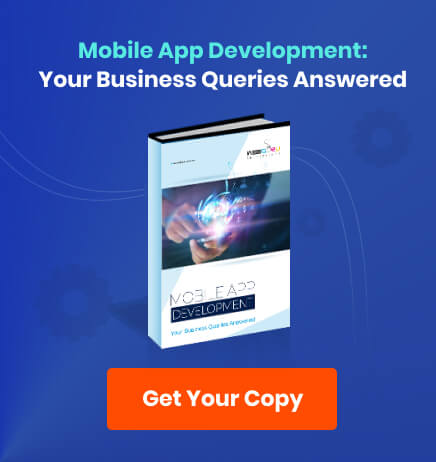Home Blog Learning Management System How a Robust LMS can Deliver Better Learning Outcomes
How a Robust LMS can Deliver Better Learning Outcomes
- 29 Jul / 2020
- 3,424 views

Studying online has been in practice for many years now, especially for those taking up courses in foreign universities or pursuing distance education. But it was not considered part of the mainstream education system and often looked down upon condescendingly by various stakeholders including educators. However, a pandemic seems to have turned the entire ecosystem and its associated thought process upside down. With COVID-19 disrupting normal lifestyle of people worldwide, many people have moved to the virtual world to conduct their lives or earn livelihoods. As educational institutions remain shut to stop the spread of the contagion, online education has become the new normal of learning – from pre-primary to the university. In fact, the market for online education is projected to touch $350 billion by 2025 (Source: Research and Markets.)
Questions about the quality of online education
No sooner the lockdown was announced that the educational institutions rushed to embrace the online mode of learning – arguably with little preparation, no training, and insufficient bandwidth. This quick transition, however, had led to a lot of unanswered questions. For example, was everyone prepared for this transition? Was the quality of education similar to the one imparted inside physical classrooms? Or how to conduct evaluation and examination online? The sudden transition had left a large number of faculties and students grappling with the new reality. In fact, many of them found it difficult to access and navigate the eLearning portals or prepare curricula for the same.
Hurried transition to online learning – the impact
Many students, especially the ones from socially marginalized backgrounds, are finding it difficult to adapt to this new mode of learning. The poor quality of eLearning software (alongwith other requisites like insufficient bandwidth, poor quality device etc) seems to have turned their experience of online learning a nightmare. It appears that many educational institutions, in order to join the online league in a hurry, did not carry out proper due diligence of the type of eLearning software to be used. In many cases, the ‘online mode of learning’ was a poorly made video containing instructions, which were difficult to listen to let alone be interpreted and internalized. The result – unhappy lots on either side of the spectrum (educators and students/parents).
A robust Learning Management System (LMS) – the way forward
Since the pandemic is not going away in a hurry and online education is going to be the norm, at least in the foreseeable future, educational institutions or coaching centres should consider adapting to a robust Learning Management System. When it is about maintaining the credibility of the whole online learning process and ensuring better learning outcomes, embracing a dynamic eLearning solution is the way to go. Let us understand the features that a robust LMS should have, which would help everyone – the admin, teacher/trainer, and the students.
Features of a dynamic LMS
It is only by embracing a dynamic LMS that educational institutions or coaching centres can create an effective virtual classroom environment for everyone’s benefit. The essential features of such an LMS are:
- Quick Enrolment: The software should allow the educational institution (read admin) to enrol students in bulk or on an individual basis for specific batches/classes/courses. The process should be available to the students as well to initiate enrolment from their end including the option to pay the fees.
- Course Materials: The LMS should allow easy upload of course materials in any subject. The course materials can be in the form of engaging videos or PDFs, which would be easy and interesting for the students to engage with. Further, the facility of making changes into the course materials through additions or deletions can make the LMS truly dynamic. And yes, the course materials should be accessible to the students who have enrolled for the same.
- Class Schedule Setup: The eLearning solution should have the provision to setup class schedule for various batches or courses. The students should be able to access the video recordings of all classes and go through online lectures at their leisure for better understanding.
- Evaluation and Assessment: Evaluation through examination is an important part of education, be it online or offline. One of the aspects defining the efficacy of a learning management system is the ease with which it allows the conduct of an assessment. A robust eLearning system should allow easy upload and management of assessments – in MCQ and subjective formats. The evaluation and assessment feature should have the provision to create questions banks and other options such as report generation, data validation, skip, timer, and the number of attempts.
- Integrated video: Virtual classes should more or less replicate the physical classes and so, the presence of a video platform is a must. The LMS should have the provision to be integrated with popular video platforms like Zoom, Skype, Cisco Webex, GoToMeeting, BlueJeans, join.me, TeamViewer, Google Hangouts Meet, and Adobe Connect, among others.
- Specialists’ Guidance: Students learning through LMS should be able to get their queries resolved by contacting the teachers taking the session. They should visit the relevant section and log their queries. The teacher on the other side should be able to view and analyze the queries and resolve them quickly.
- Customizable: Each educational institution has its insignia, theme, and colour scheme. These combinedly create an identity of the institution among its stakeholders including students. The eLearning software suite should allow customization wherein the educational institution should be able to design the layout reflecting its ethos and identity.
- Admin Panel: The LMS consists of two parts – the frontend and backend wherein the latter should be easily accessible and manageable by the admin. It should have the provision to set up ad-hoc class schedules and meetings and act as a control centre to create user types, user, course, and assessment, among others.
- Responsive: As the LMS is going to be accessed by students and other stakeholders through various devices, the same should allow seamless viewing irrespective of the device platform. So, a student should not feel left out when taking online classes through a smartphone when compared to a student accessing the LMS through a desktop.
- Report Generation: Post evaluation and assessment, the LMS should be able to generate automatic reports about the performance of students – class-wise, batch-wise, subject-wise, and course-wise. So, no individual collation of marks or performance analysis needed as the same can be done at the touch of a button.
Conclusion
With the world moving online rapidly (pandemic or no pandemic,) the education sector cannot remain stuck in time but move along. The popularity of virtual classrooms in these days of the pandemic notwithstanding, the role of a robust learning management system in delivering great learning experiences to the students cannot be ignored. Should you be running an educational institution or coaching centre, it is time you analyze the features of a robust LMS developed by an experienced website development company. Further, as a corporate enterprise too you can consider adopting an eLearning management system to help your business’s training needs.

Soumi Bhattacharya
Soumi Bhattacharya is an experienced content developer & keen observer of all things digital. Analyzing the latest trends in technology is her forte.
1 comment
Leave a Reply

-
1000+
Happy
Clients -
25+
Countries
Served -
19+
Years of
Trust








Thanks for sharing the comprehensive post, your post having informative&valuable content,it will be helpfull.